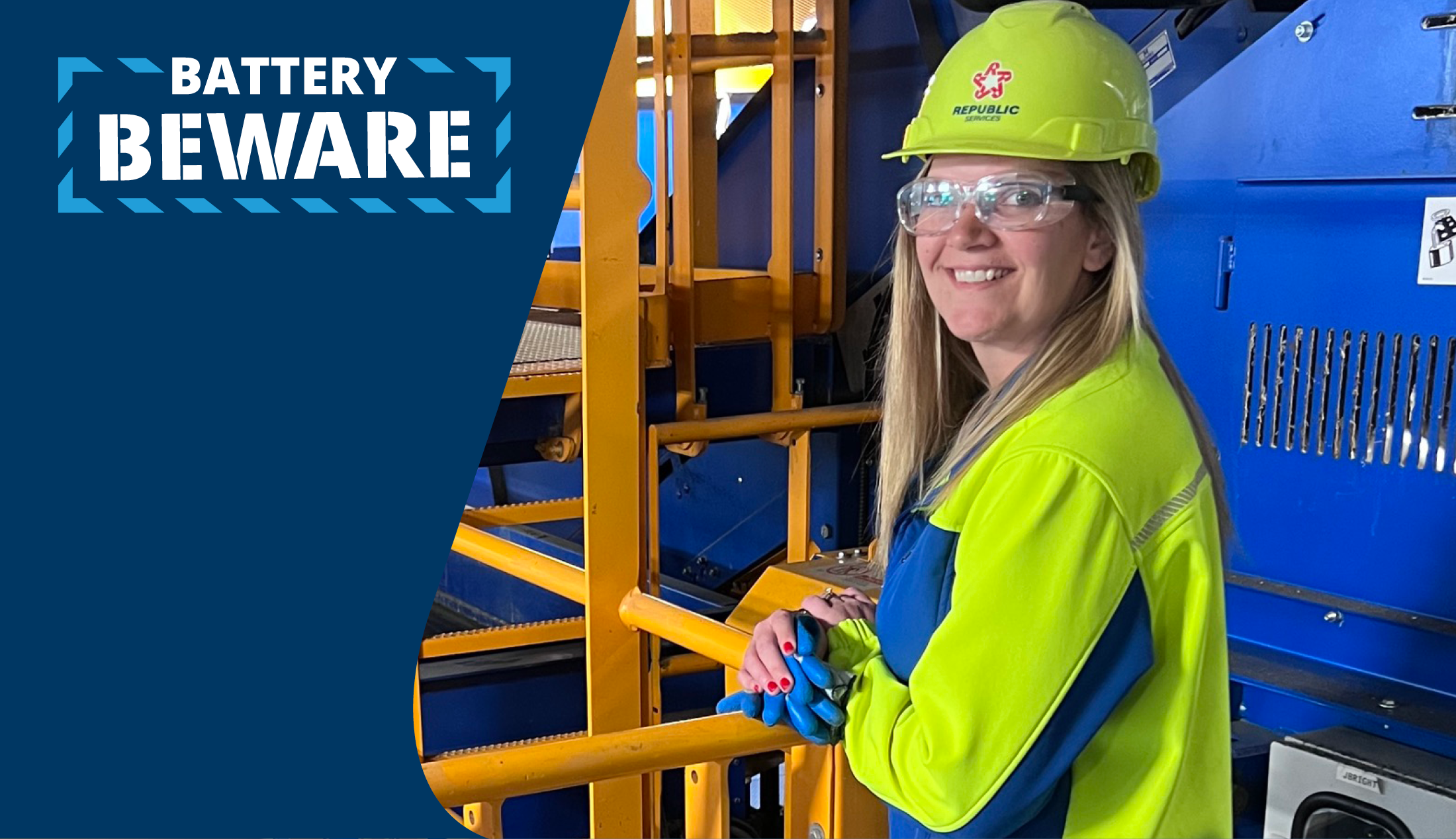Unlike other common fire threats to recycling facilities — including propane tanks, aerosol cans and discarded fireworks — lithium batteries are small and often impossible to spot. A lithium-ion battery in a singing greeting card or a discarded key fob is enough to spark a flame. To better understand why lithium-ion battery fires are happening more often and how to prevent them, we tapped into the expertise of Katie Council, Director, Operations Support Recycling and Transfer Stations.
Q: What is your role and what does a typical day look like?
A: My team supports the company’s national network of recycling and transfer stations, so every day can look very different. We might be boots on the ground in one of our 10 Areas helping the local teams solve an operational issue, working on a safety plan for fire mitigation with our corporate safety team, or researching and piloting new technology for automation in our plants. We are constantly on the move traveling every month because we feel it is the best way to engage with our teams.
Q: How does your team support Republic’s promise of Sustainability in Action?
A: Our Recycling Centers process more than 5M tons of recyclables per year. Our team supports these facilities by continuously looking for ways to improve the recovery of key materials.
Q: Why are lithium-ion battery fires happening at our recycling & transfer stations?
A:Lithium batteries are highly combustible. Think of our recycling centers like large manufacturing centers outfitted with various heavy and stationary equipment giving the batteries many opportunities to be punctured or overheated. Since most of our centers have a large volume of other materials such as paper, cardboard and plastics, this allows the batteries to ignite the other materials once combusted.
Q: How can consumers help prevent these fires?
A: Consumers can educate themselves on the proper disposal of these batteries. NEVER place them inside your recycling or garbage carts at home. I encourage all customers to check with their local municipalities for proper disposal. Customers can also check out call2recycle.org to find drop-off locations near them. Many hardware stores or electronics stores can take back the lithium batteries to recycle them safely.
Q: How can we identify what products have lithium-ion batteries in them?
A: Lithium batteries are typically labeled “Lithium” or “Li-Ion.” However, they are often embedded into a device making them harder to recognize. Items that must be charged likely contain a lithium battery. Common rechargeable devices include phones, watches, power tools, scooters, children’s toys, laptops, tablets, key fobs, security systems, and more. When in doubt, DO NOT throw it out.
Q: What’s one piece of advice you would give to employees about recycling batteries?
A: While lithium batteries and rechargeable devices should never be placed in your curbside carts, they can be recycled when returned to a participating retail store or electronics collection location. Recycling your lithium batteries properly will help conserve natural resources and keep people safe. Take charge, stay safe, and be aware of the dangers of improperly storing and disposing of lithium batteries.
A special thanks to Kati for answering our questions about lithium batteries. For more information, be sure to check out the new resources available at RepublicServices.com/LithiumBatteries.

